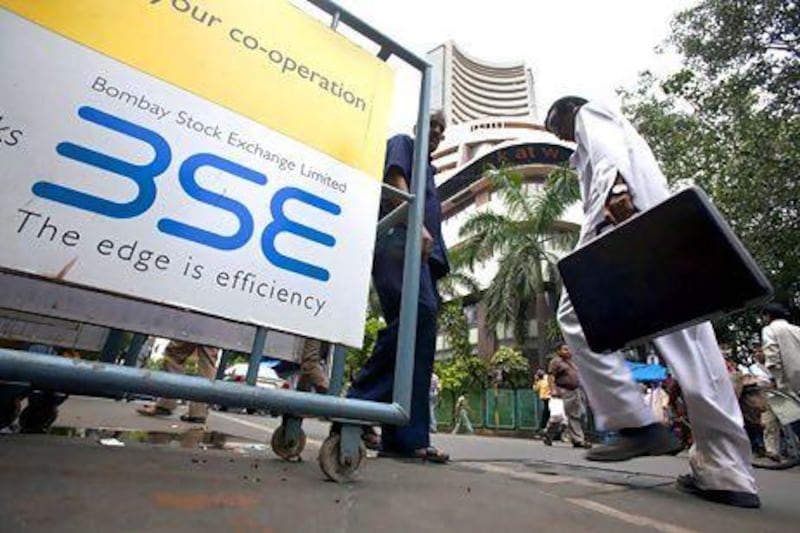The investment climate in India has soured significantly, exacerbated by a weak rupee, looming general elections and the flight of cash from emerging markets.
Foreign institutional investors last month pulled a staggering net US$7.2 billion from Indian stocks and bonds, according to data from the securities and exchange board of India (Sebi). There is little sign of relief in the near term, some analysts say.
"I believe there are both global and local factors involved," says Kamal Sen, the president and chief executive of Cogitaas, a consultancy specialising in strategy and planning.
"Globally, the Fed seems to be giving some indications that the US economy is on the path to recovery and this has led to the US dollar strengthening and investors pulling out of emerging markets and into the dollar."
The rupee has plunged to record lows against the dollar in recent weeks, hurting sentiment towards investment in India.
"The sharp fall in the rupee-dollar exchange rate has also led to expectations of higher interest rates in India and this is obviously adversely affecting the bond markets and fixed income investment," says Mr Sen.
"The weakening rupee is also affecting short-term equity investors who are concerned about further depreciation. Some analysts believe the rupee can depreciate more based on analyses of inflation differentials between India and US."
General elections in India are expected by May. This means investors are expecting big-ticket reforms to be delayed, with the government reluctant to take steps that could upset voters.
"I'm sensing a slightly exaggerated sense of negative view and pessimism among both business people and investors in India, which is not in sync with what my own views are," says Hrishikesh Parandekar, the chief executive and group head of broking, wealth management and asset management for Karvy Private Wealth.
"It's largely on the back what the government is not doing on reforms, which is only part of the story. What that means is between now and the time the elections happen, there is going to be that known uncertainty, which is going to be a pretty large uncertainty, which will have a larger impact, less on the real economy, but more on the stock markets.
"It will continue to be a drag on equities. Even if we see a couple of strong quarters of strong earnings growth, it's unlikely to break out in a big way because of the big uncertainty of what's going to happen over the elections."
Everyone agrees the elections have a major role to play in shaping India's financial markets and investor sentiment. India's government in September opened up multi-brand retail to up to 51 per cent foreign direct investment. But there has hardly been a flurry of activity since the announcement.
There are expectations the government will open up other sectors to more foreign direct investment (FDI) this month as it strives to attract more funds from overseas. Additionally, there are hopes the government will ease its stringent criteria on FDI in retail to make it more appealing to investors.
"The local factors are primarily political," says Mr Sen. "Not only is a national election imminent within a year but, more important, the outcome of economic policies from the next election is uncertain. Depending on the ruling coalition, it could be very socialistic, very inward-looking, or relatively more liberal and globalised. Moreover, it may be a mixture of these in an inconsistent fashion, depending on specific demands of smaller local parties - for example, FDI policy for retail, where each state government has its own views and there is great divergence.
"The outcome of the next election is not very predictable at this point. This will affect FDI and the plans of any long-term foreign [or domestic] investor. As to when it will end - of course, the elections being held and a new government being installed will lead to diminished uncertainty," says Mr Sen. "However, if the next government is a fragmented set of diverse parties, the uncertainty may continue for much longer."
Rajesh Cheruvu, the chief investment officer at RBS Private Banking in India, highlights the attractiveness of growth in Indian markets, which could help demand for stocks to pick up. The slowdown in economic growth in India, which was at a decade low of 5 per cent in the past year, is widely believed to have bottomed out.
"At the moment we are seeing some of amount of risk aversion towards emerging market equities," says Mr Cheruvu. "Once that recedes, depending on the timing of the Fed's tapering, you might see flows coming back into Indian markets."





